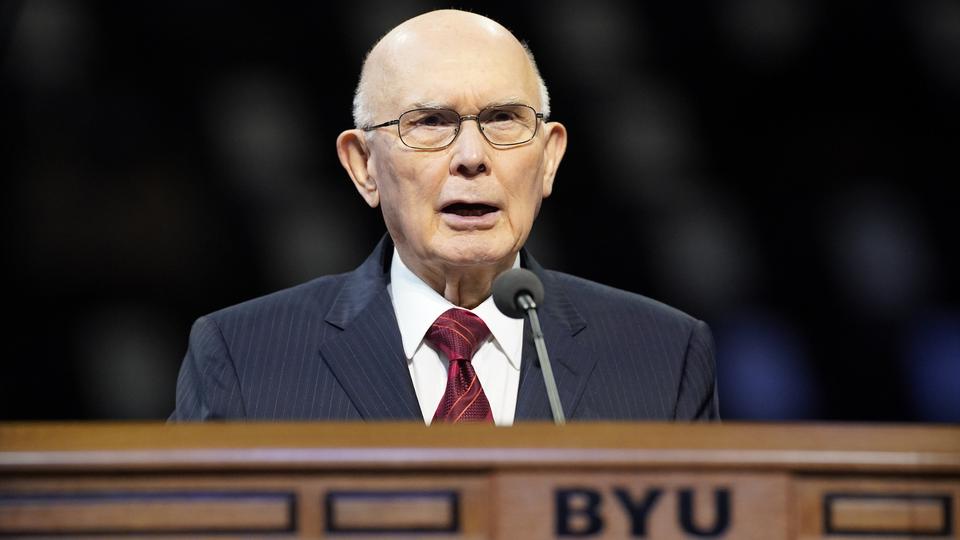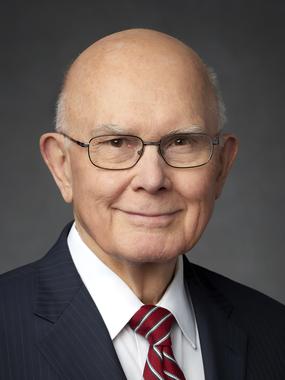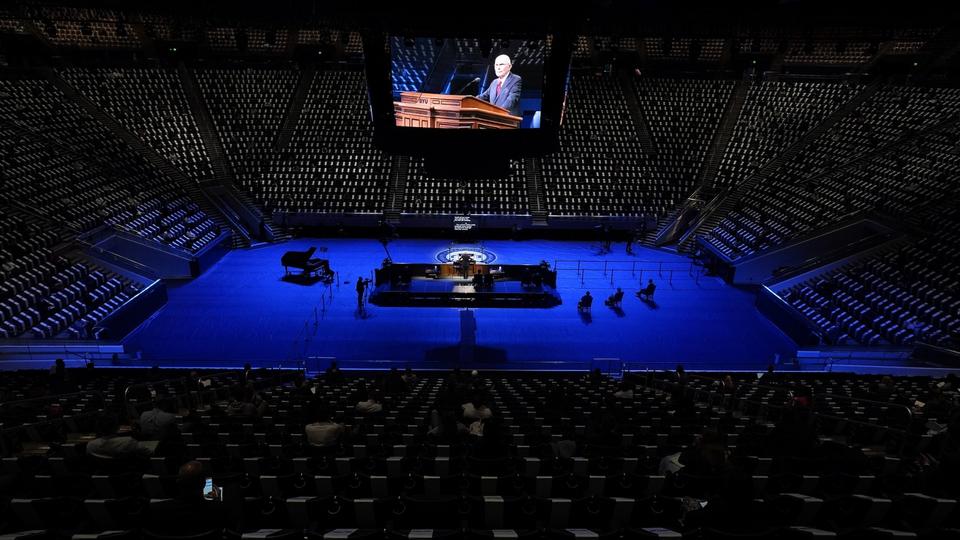
The talk was given on October 27, 2020, during a devotional at the Marriott Center on the campus of Brigham Young University in Provo, Utah. Read the full talk here: Racism and Other Challenges
What Will Bring Peace in Our Time of Anxiety, Racism and Other Problems? The Gospel of Jesus Christ, President Oaks Says.
In these troubled days, how does one find peace? Also, how should we understand the United States’ history of racism through contemporary eyes?
President Dallin H. Oaks of the First Presidency of The Church of Jesus Christ of Latter-day Saints counseled students at Brigham Young University (BYU) on these topics during a campus-wide devotional address on October 27, 2020.
“The shocking police-produced death of George Floyd in Minnesota last May was surely the trigger for these nationwide protests, whose momentum was carried forward under the message of ‘Black Lives Matter,’” said President Oaks. “Of course, Black lives matter! That is an eternal truth all reasonable people should support. Unfortunately, that persuasive banner was sometimes used or understood to stand for other things that do not command universal support. Examples include abolishing the police or seriously reducing their effectiveness or changing our constitutional government. All these are appropriate subjects for advocacy, but not under what we hope to be the universally acceptable message: Black lives matter.”
In his talk, President Oaks repeated several recent teachings of Church President Russell M. Nelson on racism:
- “God does not love one race more than another.”
- “Favor or disfavor with God is dependent upon your devotion to God and His commandments, and not the color of your skin.”
- We should “build bridges of cooperation instead of walls of segregation.”
- “Any of us who has prejudice toward another race needs to repent!”
- Latter-day Saints should “lead out in abandoning attitudes and actions of prejudice toward any group of God’s children.”

“Only the gospel of Jesus Christ can unite and bring peace to people of all races and nationalities,” he said. “We who believe in that gospel — whatever our origins — must unite in love of each other and of our Savior Jesus Christ.”
President Oaks also noted that the efforts of some today to erase from history people associated with slavery may “accomplish nothing but a bow to the cause of political correctness.” Instead, President Oaks encouraged “inspiration, education and clear thinking.” In his remarks, he related a recent and serendipitous encounter with some of the words of Winston Churchill from 1940.
Churchill was once a minority voice in Britain who warned of the evils of the Nazi government in Germany. Later, after many of his predictions came to pass, he became prime minister. Some of his colleagues in government wanted to punish those who had ignored his warnings and thus contributed to Britain’s lack of preparedness during World War II.
Churchill, however, saw folly in such an approach.

“There are many who would hold an inquest in the House of Commons on the conduct of the Governments — and of Parliaments … during the years which led up to this catastrophe. They seek to indict those who were responsible for the guidance of our affairs. This also would be a foolish and pernicious process. … Of this I am quite sure, that if we open a quarrel between the past and the present, we shall find that we have lost the future.”
This, President Oaks said, is important wisdom for our current moment.
But racism against African-American is not the only example of racism. President Oaks reminded his listeners that “There are many examples of racism in recent American history. The examples most familiarly reported by the media today are those that victimize Black Americans. These include the police brutality and other systemic discrimination in employment and housing publicized recently.
Racism is still recognizable in official and personal treatment of Latinos and Native Americans. Less familiar in our day is American’s history of racism against Asians, which began with Chinese immigrants who worked on the Transcontinental Railroad. It was not until a century ago that Native Americans were considered U.S. citizens and Asians were allowed to apply for U.S. citizenship.”
Read the full talk here: Racism and Other Challenges

Trackbacks/Pingbacks